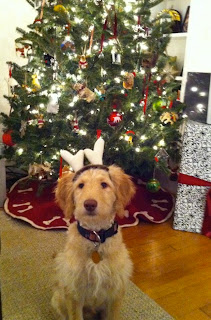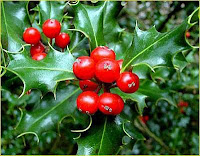As we welcome in 2011 now is a good time to make sure your pets are up to date on vaccines and check when their next annual exam is due. Regardless of age all pets should see a veterinarian every year for an exam. At this appointment we will perform a complete physical exam that includes:
- · Evaluating your pet’s teeth to look for dental disease
- · Listening for a heart murmur which could indicate underlying heart disease
- · Assessing weight and body condition
- · Manipulating joints to check for arthritis
Based on the results of the exam and the history you give us we can discuss recommendations to keep your pet as happy and healthy as possible.
Dogs and cats over the age of nine are considered seniors and for these guys we recommend that owners have a complete blood count (CBC), chemistry panel and urinalysis performed yearly as part of their senior pet’s wellness exam. These tests not only alert us to diseases that may already be present but also serve as a base line for problems that may occur in the future.
I often find that people will decline, and instead opt to wait, reasoning that “Fluffy seems healthy, I’m not concerned”. I know it is expensive and more often than not everything is normal, but if we catch something early then perhaps we can start treatment now before it becomes a problem.
One pet that recently benefited from early detection is Sox, a perfectly healthy-seeming 10-year-old cat whose owners elected to do senior blood work during his annual exam. We found mild elevations in kidney values accompanied by dilute urine indicating decrease in kidney function. Since this was caught early we can switch Sox’s diet and start medications to protect the remaining kidney function that is present.
Catching diseases we can manage or treat early will ultimately lead to a longer and healthier life for your pet, which is what we all want.
Happy New Year and best wishes for a wonderful 2011!










